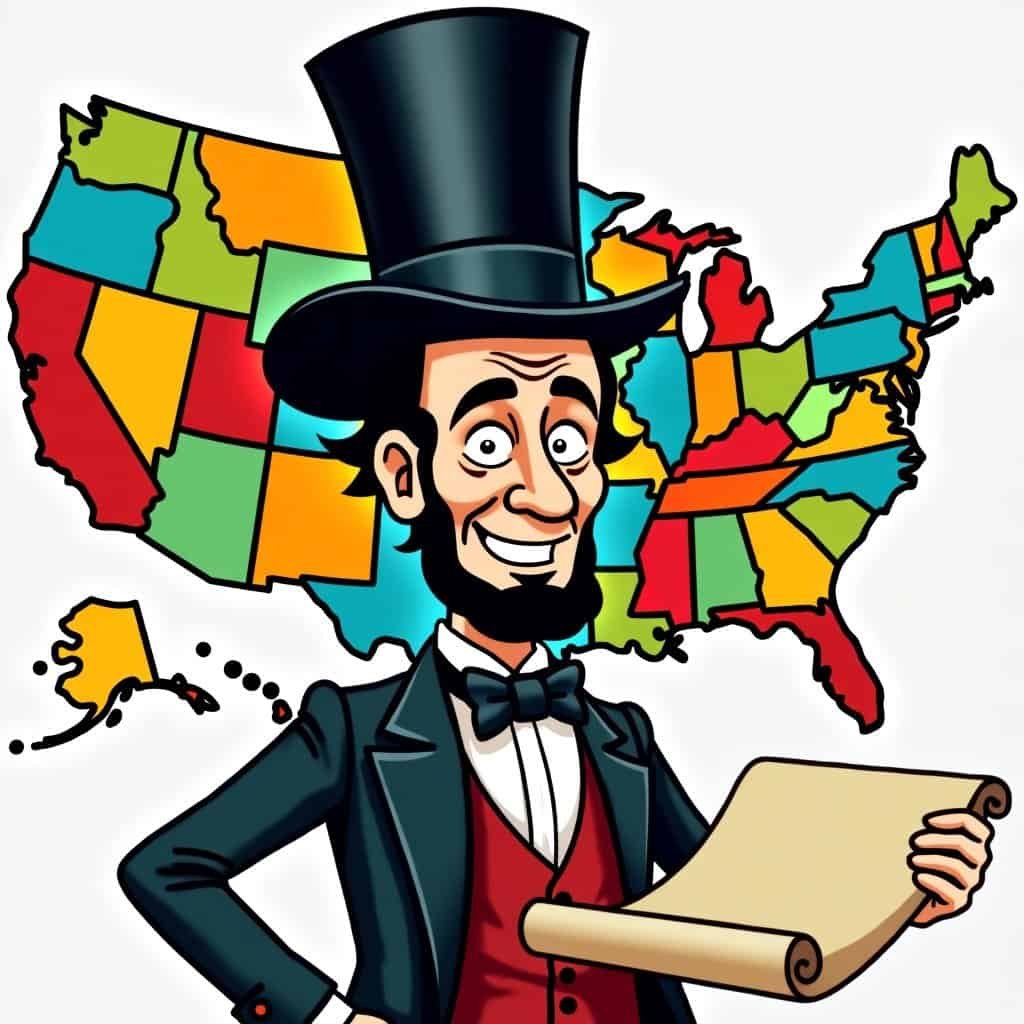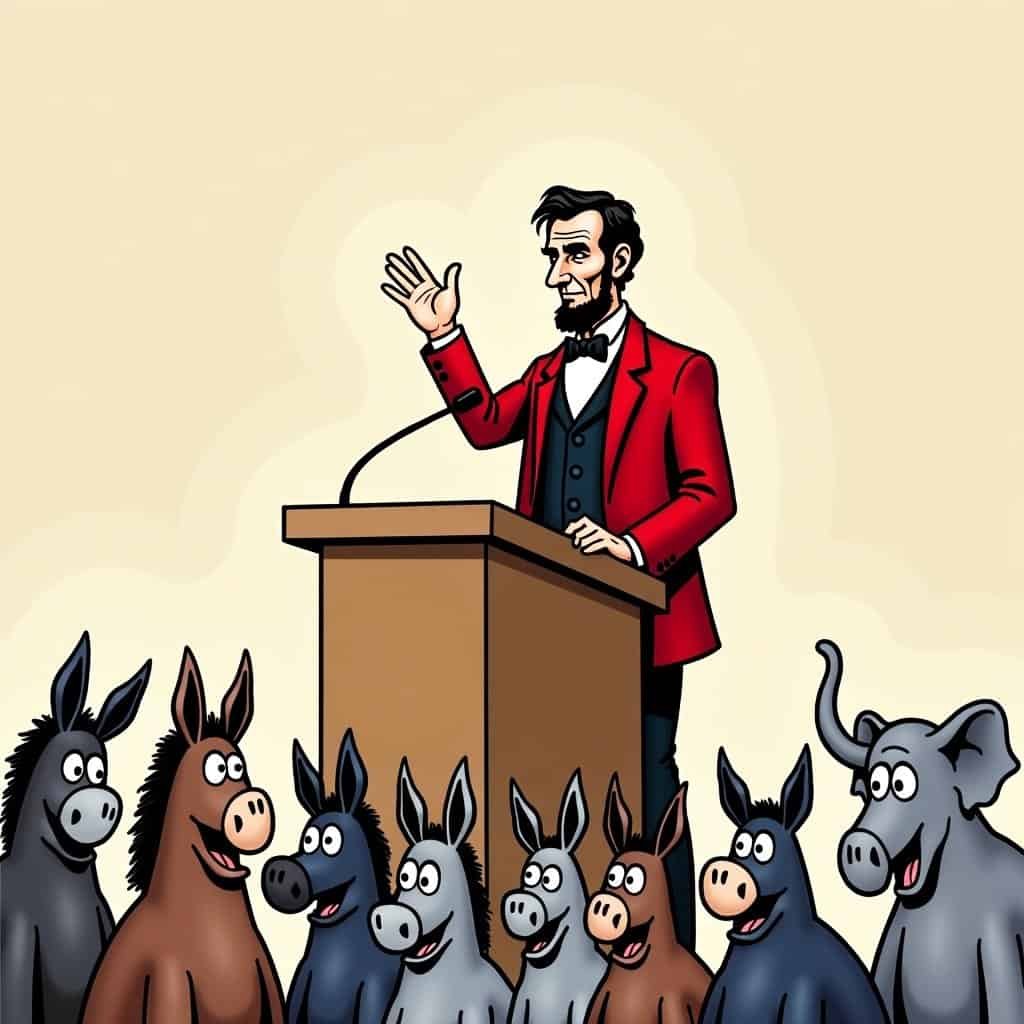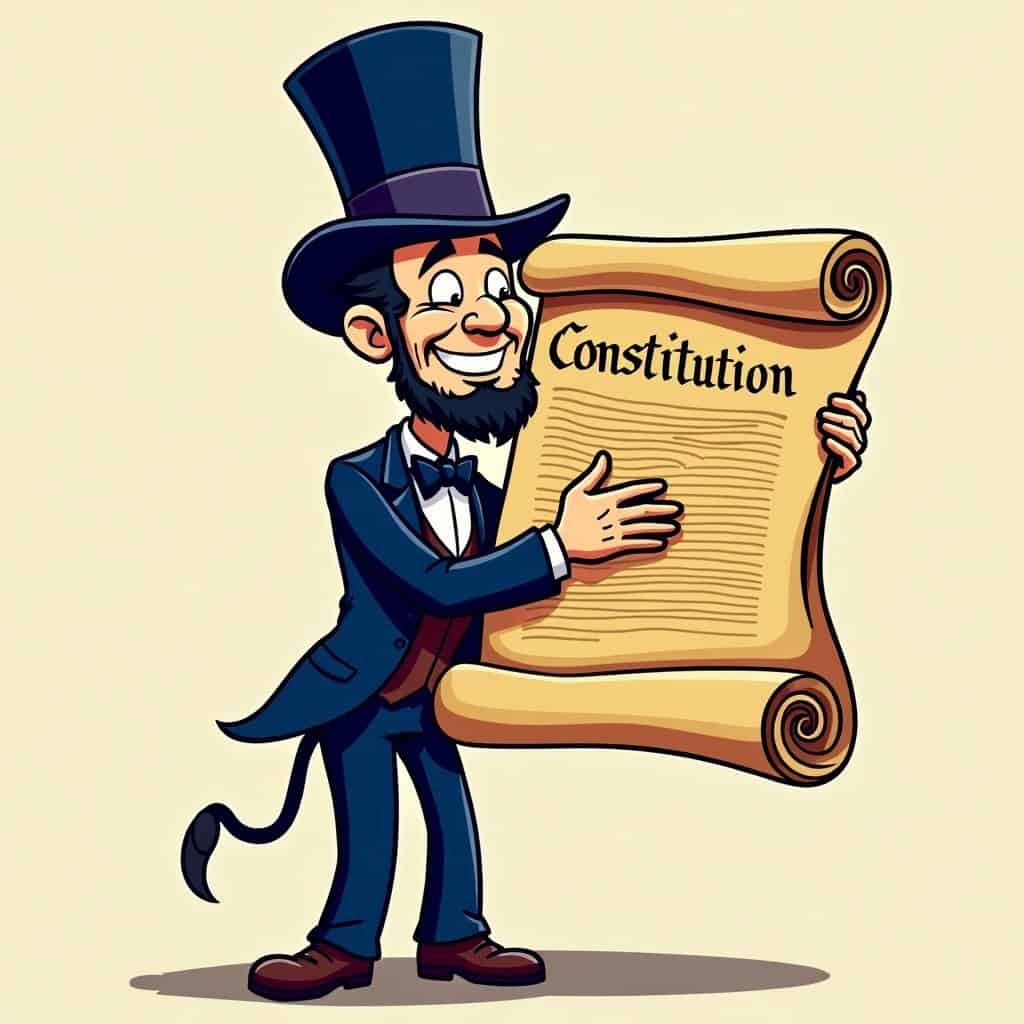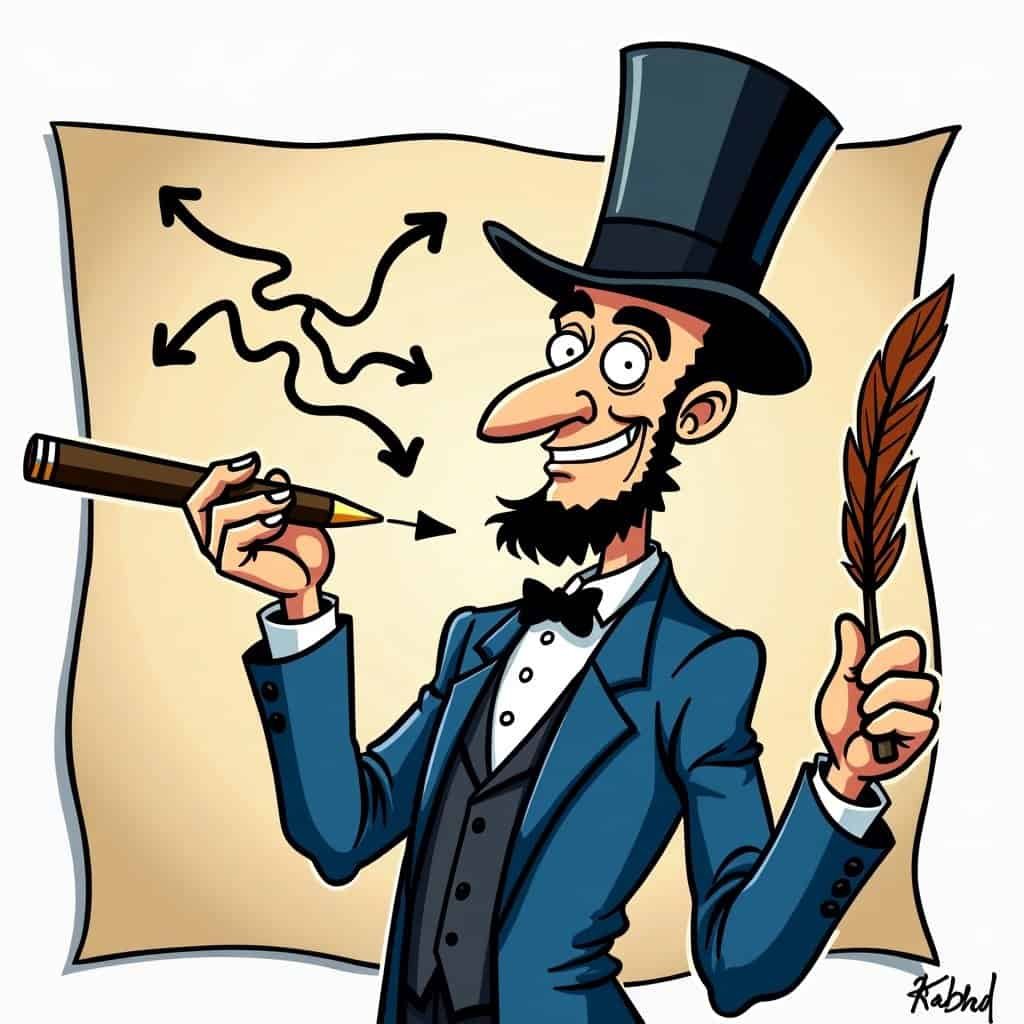Once upon a time, in a land not so different from ours, we had a president who was perhaps more Republican than your great aunt’s apple pie: Abraham Lincoln. Now, some folks—likely the kind who think tofu’s a food group—argue about his role in the Civil War, portraying him as a champion of federal might. But hang on to your horses, because Honest Abe’s story is really about standing up for a government that’s small enough to fit in your jeans pocket and light enough not to make your wallet cry. Oh, the irony!
Imagine this. Abraham Lincoln – tall, thoughtful, and sporting a top hat with more flair than a hipster at a farmers market. Honest Abe found himself leading the country when the nation couldn’t quite decide if it was one big happy family or a mishmash of states with as much rivalry as a family game of Monopoly. While some voices of his time wanted a stronger federal grip (think overbearing parent), Lincoln got the tricky dance of keeping the nation together while respecting states’ rights.
Lincoln’s Beliefs: Small Government, Big Impact
You see, Lincoln was all about keeping the Union intact. But he also knew that a stranglehold from a bloated government could squeeze the life out of individual freedom. Lincoln’s economic ideas were rooted in free-market thinking. Picture federally funded railroads connecting states faster than Billy the Kid could draw his pistol! It wasn’t about the government sticking its nose where it didn’t belong, but rather setting the stage for states to chart their own course while keeping the nation from falling apart at the seams.
Lincoln’s Key Policies
- Homestead Act of 1862: Gave common folks a shot at owning land without breaking the bank
- Transcontinental Railroad: Connected states, boosted commerce, didn’t step on states’ toes
- National Defense: Strong but not overbearing, focused on protecting the Union
- Economic Policies: Embraced free-market principles, encouraged state autonomy
He didn’t just push for a railroad, folks; he laid the tracks for our future. Take the Homestead Act of 1862. This was a nod—or maybe a gentlemanly tip of the top hat—to the average Joe’s chance to carve out his American dream on a humble patch of God’s green earth. That’s right, folks, owning land without being taxed back to your fiddle-and-banjo roots.
Even when it came to keeping the country safe, Lincoln’s idea of a federal government was about standing tall yet not stepping on toes, unless those toes were directly threatening to stomp on the Union’s own precious rights. National defense, yes; national nosiness, no thanks. He was living proof of the idea, “speak softly and carry a big stick,” long before Teddy made it his catchphrase.
Lincoln’s Legacy: More Than Just a Pretty Penny
Of course, we can’t talk about the legendary debates with Stephen Douglas without secretly wishing for some more Lincoln-Douglas style showdowns on today’s political stage! He leaned on deeply held conservative values wrapped in words that even his opponents found hard not to agree with. A true wordsmith of ideas.
In the grand play of life, Lincoln was both the director and the star, spinning a tale where the states knew their worth and the federal government knew its place—not as a bossy pants, but a guardian; not a chef but a conductor of the great orchestra of states’ rights. So, let’s raise a glass, or maybe a stovepipe hat, to Lincoln. To keeping government just the right size—not too big to mess with personal freedoms, yet strong enough to keep the stars shining bright and the stripes proud!






